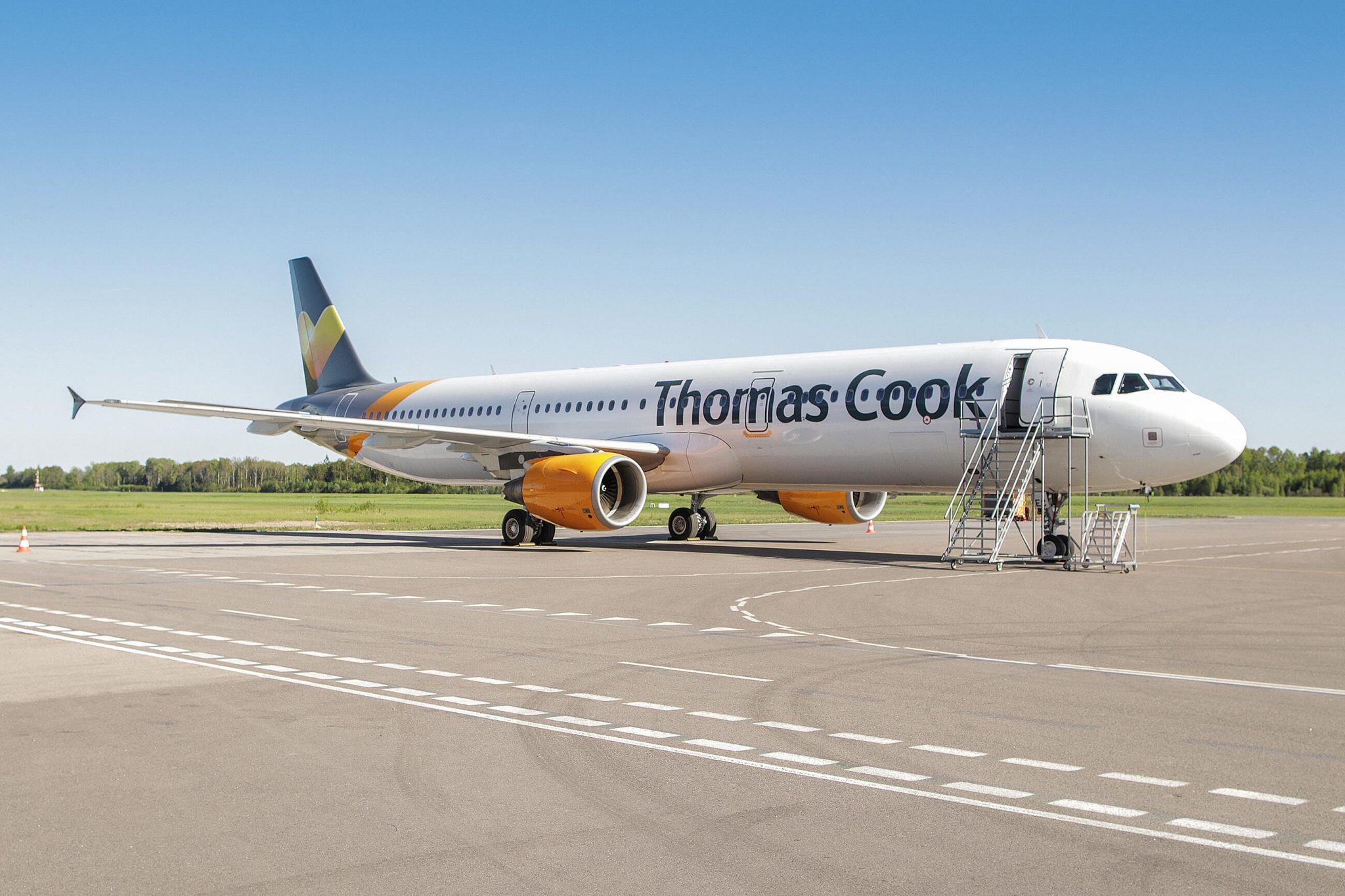Thomas Cook has been forced into compulsory liquidation this morning.
At this time, the UK liquidators control: three A320-200s, 35 A321-200s and eight A330-200s under the UK brand – then under Thomas Cook Airlines Scandinavia, they have: eight A321-200s and three A330-200s; with six A320-200s under Thomas Cook Airlines Balearics.
Today, 38 aircraft lessors are moving swiftly to recover their assets from the dust of Thomas Cook’s failure. Right now, 63 leased aircraft are directly under the control of the UK liquidators. The total combined fleet is 116 aircraft, 111 of which are not owned by the holiday company. Some are wrapped up in various financial instruments affecting around 38 separate entities with 18 major lessors affected. This leaves 48 aircraft directly unaffected but lessors will be scrambling to find out if they are going to be sucked into this mess over the coming days. It should be noted though that assets flying with Condor appear to be in safe hands, the airline says it is flying as usual, the 49.996% ownership of Condor that is in the hands of the UK liquidators will be a target for another investor for sure. The indirectly affected fleet under the Condor brand comprises: seven A320-200s, 14 A321-200s, one A330-200, 15 757-300s and 16 767-300ERs.
It is astounding that once again the A320 series bears the brunt of an airline failure, but this time we are looking at a large number of A321-200s – some 43 aircraft. These are gold dust right now both in terms of airframe and stand-alone engine lease rates. It could be an opportunity for some lessors to increase the rental while the MAX remains grounded and unreliable even when it is in the air. The A330-200 are another matter – 11 of those are now on the market, we do not know what sort of green time is remaining on the engines but we can expect 11 aircraft coming to market to depress the lease rates for some time. Getting those out on lease or sold off is going to be a very hard task and many lessors have their work cut out to get this done.
The simple fact was/is that Thomas Cook, much like Blockbuster Video, had a market leading position based on a pre-internet business model that was always going to collapse. Unlike Blockbuster management who simply could not see the wood for the trees and sat back doing nothing, Thomas Cook actually had a decent plan of action way back in 2010. They planned to close all stores and stop printing brochures, but then when they were hit hard by the Arab spring they found themselves unwilling to sink the company deep into the red with large scale redundancy payments. The fall-away in North African tourism hurt the company and that market never recovered, so they put back their plans, they diverted significant resource into Turkey to close the losses left from the North African market. However, then followed the Turkish attempted coup and that market too fell off of a cliff, so again Thomas Cook put back store closures. Then came Brexit, Sterling fell-back heavily and Thomas Cook costs increased by 8% over night, increasing to around 20% today. At the same time, Brexit worries saw customers putting off spending while a very hot UK summer in 2018 saw bookings fall terribly. With the benefit of hindsight, we can argue that if Thomas Cook had closed its 500 stores and stopped printing millions of brochures and gone online back in 2005 when all competitors did then it would have survived in one way shape or form as a strong company. But, it is the culmination of that series of very large geopolitical hits which has sent the company into administration not simply the outdated business model (which may have survived).
But this is not the end of the story. Only the UK parent has gone into administration – ATOL has hired 45 aircraft to fly 64 routes today, but that is only to repatriate some 14,000 to 16,000 holidaymakers. The reality is that Thomas Cook has Chinese, Indian, German and Nordic subsidiaries with a far larger customer base with an estimated 300,000 to 400,000 holiday makers overseas right now, those subsidiaries are insulated from the collapse of the UK parent but they still rely on aircraft and information technology that is owned by the UK company and which are under the control of the receiver. All of this means that these subsidiaries will not be able to function correctly without some sort of deal with UK receivers over the coming days. This has happened in the UK and thus lessors should get their assets returned in good order. The timing with the MAX on the ground is good for A320 and A321 aircraft to be leased at speed at better rates than previously, we just need to watch the A330 aircraft and the lease rates for that type, that is the real area of worry for lessors.

